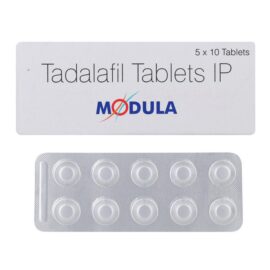Riborea
Product Overview
Riborea is a prescription medication containing Hydroxyurea as its active component. This oral chemotherapeutic agent functions by disrupting the proliferation and metastasis of malignant cells within the body. The drug is formulated as capsules for convenient oral ingestion.
Therapeutic Applications
Riborea is principally indicated for the management of specific hematologic malignancies, including chronic myelogenous leukemia (CML), essential thrombocytosis, and polycythemia rubra vera. It also demonstrates efficacy in sickle cell anemia management. The medication exerts its therapeutic effect through selective inhibition of ribonucleotide reductase, a crucial enzyme in DNA biosynthesis, thereby impeding cellular replication in neoplastic cells.
Administration Guidelines
For optimal absorption, Riborea capsules should be swallowed whole with ample water. The recommended dosing schedule is typically once daily on an empty stomach, maintaining at least a one-hour fast before or two hours after consumption. Therapeutic regimens are individualized based on disease pathology, clinical staging, patient comorbidities, and treatment response. Strict adherence to prescribed protocols is essential – capsules must not be crushed, divided, or chewed.
Mechanism of Action
The pharmacodynamic activity of Riborea’s active moiety, Hydroxyurea, centers on competitive inhibition of ribonucleotide reductase. This enzymatic blockade disrupts deoxyribonucleotide triphosphate synthesis, consequently impairing DNA replication kinetics in rapidly proliferating malignant cells. The resultant cytostatic effect manifests as arrested tumor progression and eventual neoplastic cell apoptosis.
Dosage Protocol
Therapeutic dosing of Riborea requires careful titration based on hematologic parameters, tumor burden, and patient-specific factors including hepatic/renal function. Clinicians will establish an appropriate dosing regimen through continuous monitoring of therapeutic response and toxicity profiles. Patients must maintain strict compliance with prescribed schedules and refrain from autonomous dosage adjustments without medical consultation.
Therapeutic Advantages
- Demonstrated efficacy in myeloproliferative disorders including CML, essential thrombocythemia, and polycythemia vera
- Antineoplastic activity through selective inhibition of DNA biosynthesis
- Clinical utility in reducing vaso-occlusive crises in sickle cell anemia
- Convenient oral dosage form enhances treatment adherence
- Potential for synergistic use with other oncologic therapies
Adverse Effect Profile
Common adverse reactions may include gastrointestinal disturbances (nausea, vomiting, diarrhea), anorexia, and cutaneous eruptions. These typically represent transient adaptation phenomena. More serious hematologic complications include myelosuppression with consequent pancytopenia. Immediate medical attention is warranted for febrile episodes, hemorrhagic manifestations, or profound fatigue suggesting hematologic toxicity.
Precautions and Contraindications
Riborea is absolutely contraindicated during gestation due to teratogenic potential. Dual contraception methods are mandatory during treatment. Neurocognitive effects including somnolence may impair operational skills – patients should abstain from hazardous activities until individual tolerance is established. Comprehensive medication reconciliation is essential prior to initiation to identify potential pharmacologic interactions.
Storage Requirements
Maintain Riborea capsules at controlled room temperature (15-30°C) in original packaging, protected from humidity and light exposure. Implement appropriate safeguards to prevent pediatric or accidental exposure. Dispose of expired or unused medication in accordance with regional pharmaceutical waste regulations.
Medical Disclaimer
The information provided herein represents carefully curated, evidence-based data intended for educational purposes only. This content neither substitutes for professional medical judgment nor encompasses all potential adverse effects, contraindications, or drug interactions. Healthcare providers should be consulted for personalized therapeutic recommendations. Our objective is to facilitate informed patient-provider dialogue, not to replace clinical decision-making.
| Strength | 500 mg |
|---|---|
| Quantity | 30 Tablet/s, 60 Tablet/s, 90 Tablet/s, 180 Tablet/s |
 Riborea
Riborea


































Reviews
There are no reviews yet